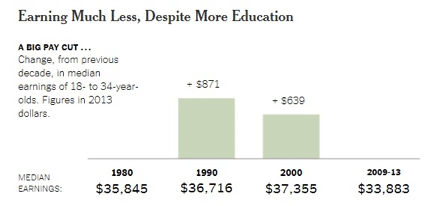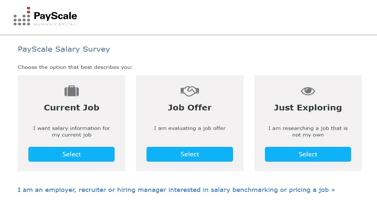Nothing is more important for your financial future than getting paid what you are worth. Every time you get underpaid, your lifetime earnings as well as savings are profoundly influenced. Moreover, your future salary depends on the amount of money you’re receiving today. Given that the vast majority of Millennials are underpaid, it’s safe to assume you’re one of them.
The thing is, only a small fraction of them actually do something about it and improve their financial future. You can, too.
Do you Want to Ask for a Raise? Collect Some Evidence First
The success totally depends on your preparation. A lack of evidence means that you have no idea what you’re really asking for. Why does your boss have to give it to you? To answer this question, you need to gather two kinds of evidence.
The first kind involves information about your significant individual contributions to the company. For example, it might be:
- Lots of positive feedback from customers
- Praise from your supervisors
- Successful strategies and methods that were designed by you
Remember, your boss might not know about everything you’ve done for the company, so remind them about your accomplishments.
The second kind of evidence is the information about company- and industry-wide salaries. It will help you to calculate the exact amount of money to as for. For this, you need sites like PayScale. It is designed to assist people in finding out what they are worth by comparing salaries in the industry and much more.
Once you have the number and the supportive evidence, it’s time to proceed.
Expert tip: don’t just review the data you found on PayScale. Print it out and save it for the meeting with your boss. It would be a huge help once needed to support your statements.
You Can Improve Your Chances of Getting a Raise by Asking for The Right Amount
If you’re aiming for a 20+ percent raise right away, forget it. Most bosses will not even consider giving you this amount unless you are wildly underpaid. So, to improve your odds of getting something, you have to ask for the right raise amount.
Let’s start with finding out whether you are underpaid to get a better idea of how much you should ask. For example, the average earnings of adults between 2009 and 2013 were $33,880. This is the lowest compensation since 1980, according to a recent article by The New York Times.

So, having reviewed these data, it’s safe to assume that you’re underpaid if you are a Millennial. It’s unacceptable since you are a representative of the best-educated, savviest generation to date. You have a good education, numerous college paper writing and reports. The only possible reasons for this are a recession, a slow recovery, and unbelievable amounts of student debt (over $1.4 trillion!).
Feeling surprised? Well, you might, because Millennials should, theoretically, be the highest paid generation of U.S. adults.
Let’s get back to asking for a raise now. Because of a slow recovery and other aforementioned things, your boss might be reluctant to give you 20+ raise. Thus, the perfect amount to ask for is between 5 and 15 percent.
Find the Perfect Time to Ask
Timing is critical here as well. For example, if you are going to ask for a raise on a random Wednesday at 3 pm when your boss is under a lot of stress, you’ll probably get nothing. Also, Monday morning might not be a good time because your boss has not probably recovered from the weekend yet.
According to the latest research, the best time to ask for a raise is Friday morning. Wait until your boss is ready for work and finished their first cup of coffee. 10 or 11 am should be the best time.
Why Friday morning? Because it’s Friday, and your boss is probably getting excited for the weekend. Also, as Forbes wrote, psychologists suggest people are more generous in the morning.
Finally, Ask for a Raise. Avoid Negativity and be Confident
Your boss might be okay with paying you more, you just need to ask. Most bosses want their workforce to be happy and stay if they are valuable. And you are valuable to your company more than you think!
Expert Tip: project confidence and strive for a tone of mutual respect. When you approach your boss, you have to behave calmly and positively. Avoid confrontation and phrases that turn the conversation adversarial:
- “I think that my performance is very good”
- “Don’t you agree I deserve a raise?”
- “I do more than Jenny and Mark combined!”
Instead, go for positive body language. It’ll work much better than complaints.
What to Do if the Answer is No?
Be prepared to get a negative answer but don’t get negative when you do. Maybe your boss needs some time to wrap their head around to figure out what to do with you.
Or, you can try to change their answer by asking them how you can get it. For example, you can accept some new responsibilities. It’ll show your commitment to grow within the company.
Key Takeaways
- Gather evidence and prepare your case
- Ask for a right amount
- Your best bet is to ask on Friday morning
- Don’t be negative and confrontational

